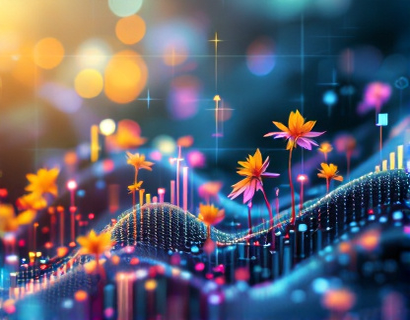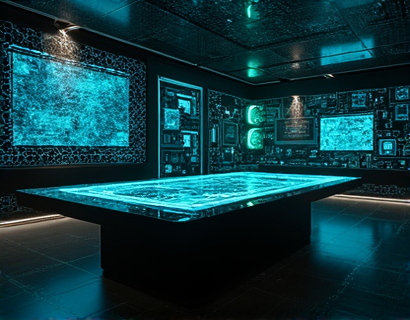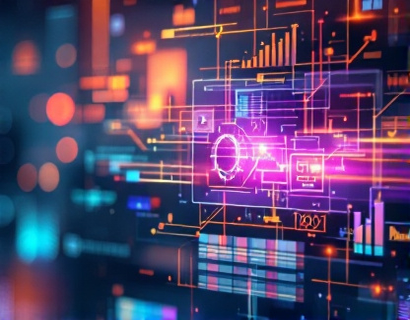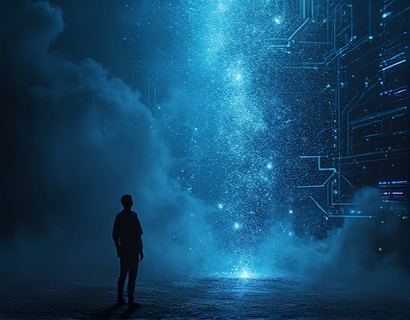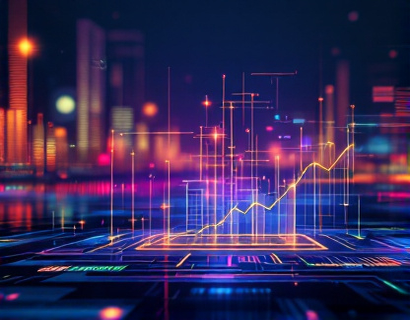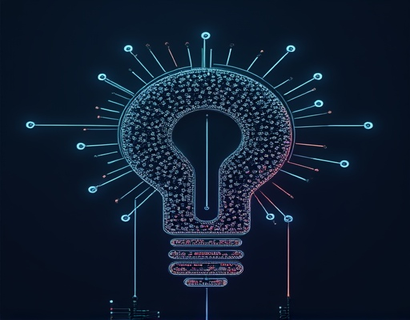Unlocking Musical Mastery: Harnessing AI for Advanced Composition and Production
The integration of Artificial Intelligence in music creation has opened new frontiers for artists and creators, revolutionizing the way music is composed and produced. This technological advancement offers a powerful toolset that not only streamlines the creative process but also enhances the quality and innovation of musical works. For both seasoned professionals and emerging talents, AI-driven software provides an unprecedented opportunity to transform their musical ideas into reality with greater ease and sophistication.
In the digital age, the music industry is constantly evolving, driven by technological innovations and changing consumer preferences. The advent of AI in music production has been a game-changer, offering tools that can analyze, generate, and refine musical elements with remarkable precision. These tools empower creators to explore new sonic landscapes, experiment with complex compositions, and achieve a level of sound quality that was previously unattainable.
Enhancing Creativity with AI Tools
One of the most significant benefits of AI in music creation is its ability to enhance creativity. Traditional composition methods can sometimes lead to creative blocks or limitations, but AI tools break these barriers by providing endless possibilities. For instance, AI algorithms can suggest novel chord progressions, melodies, and rhythms that a human composer might not consider. This not only broadens the creative horizon but also inspires artists to think outside the box and push the boundaries of their art.
Moreover, AI can analyze vast amounts of musical data to identify patterns and trends, offering insights that can inform and enrich the creative process. By understanding what works and what doesn't in various genres and styles, AI can guide composers in making informed decisions, thus refining their artistic vision. This data-driven approach ensures that the music produced is not only innovative but also resonates with the target audience.
Streamlining Composition and Production
The composition and production phases of music creation are often time-consuming and labor-intensive. AI tools significantly reduce the time and effort required by automating repetitive tasks and providing intelligent assistance. For example, AI can assist in arranging tracks by automatically generating part arrangements, balancing levels, and applying effects. This not only speeds up the production process but also allows artists to focus more on the creative aspects, such as lyric writing and melody crafting.
Additionally, AI-powered plugins can simulate the sound of various instruments and equipment, enabling producers to experiment with different textures and tones without the need for extensive hardware. This flexibility is particularly beneficial for creators working with limited resources, as it provides access to a wide range of sounds and effects that would otherwise be costly or impractical to obtain.
Improving Sound Quality
Sound quality is a critical factor in music production, and AI technology has made significant strides in this area. Advanced algorithms can analyze and enhance audio recordings, reducing noise, correcting pitch, and improving overall clarity. These tools can also apply sophisticated mastering techniques, ensuring that the final product sounds polished and professional.
Furthermore, AI can assist in creating immersive audio experiences by optimizing mixes for various playback environments, from high-end studio systems to portable devices. This adaptability ensures that the music maintains its quality and impact across different platforms, enhancing the listener's experience.
Collaboration and Accessibility
AI in music creation also fosters collaboration and accessibility. Cloud-based AI tools allow multiple artists to work on a project simultaneously, regardless of their physical location. This real-time collaboration feature is particularly valuable for remote teams or artists working on international projects, streamlining the workflow and fostering creative synergy.
Moreover, AI makes music creation more accessible to a broader audience. Beginners can leverage AI tools to learn and practice music production without the need for extensive technical knowledge. Tutorials and guided processes within these tools can help newcomers understand the basics of composition and production, gradually building their skills and confidence.
Case Studies and Real-World Applications
The impact of AI in music creation is evident in various successful projects and collaborations. For instance, several renowned artists have incorporated AI-generated elements into their albums, resulting in critically acclaimed works that push the boundaries of traditional music. These projects demonstrate the potential of AI to not only assist but also inspire and elevate the creative process.
In the film and game industry, AI music composition has become increasingly prevalent, providing dynamic and adaptive soundtracks that enhance the overall experience. These applications showcase the versatility and efficiency of AI in generating music that complements and enhances visual content.
Challenges and Considerations
While the benefits of AI in music creation are undeniable, there are also challenges and considerations to keep in mind. One of the primary concerns is the potential loss of human touch and emotional depth in music. While AI can generate technically proficient tracks, the soul and authenticity often come from the human experience. Therefore, it's essential for artists to use AI as a tool to augment their creativity rather than replace it entirely.
Another consideration is the ethical use of AI, particularly regarding copyright and ownership issues. As AI-generated content becomes more common, it's crucial to establish clear guidelines and regulations to protect the rights of creators and ensure fair compensation.
Future Prospects
The future of AI in music creation is promising, with ongoing advancements expected to further enhance its capabilities. As AI algorithms become more sophisticated, we can anticipate even more intuitive and powerful tools that seamlessly integrate into the creative process. The potential for AI to assist in music therapy, education, and accessibility is also vast, opening new avenues for innovation and inclusivity in the music industry.
In conclusion, AI has the potential to revolutionize music composition and production, offering unparalleled tools that enhance creativity, streamline workflows, and improve sound quality. By embracing these technologies, artists and creators can unlock new creative potentials and push the boundaries of musical expression in the digital age.





